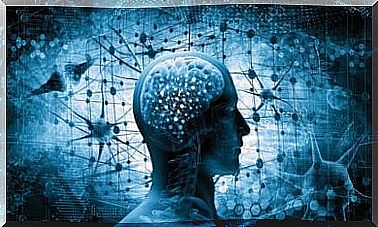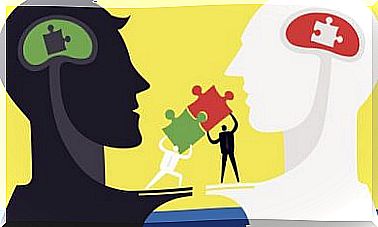The Law Of Psychological Reciprocity: What Is It?

The law of psychological reciprocity is the social glue that enriches our relationships. It is about something as simple – and complex at the same time – as doing something good for someone to make them feel motivated to do the same for us. It is a disinterested “I give you, you give me”, but oriented to seed our social environments with noble values.
We all remember, no doubt, someone who did something noble for us. There always comes a day when we find the opportunity to repay someone for their nice gesture, to repeat that selfless and sincere behavior that does not only benefit the other person, because it also makes us happy.
Because reciprocity, even if it can surprise us, is a dimension that orchestrates our behavior since time immemorial. The brain knows its benefits. Renowned archaeologist Richard Leakey points out that “we are human because our ancestors learned to share their food and skills in an honored network of obligations.”

What is the law of reciprocity?
The law of reciprocity is also known as the “persuasion” of reciprocity. In a way, there is in this act an attempt to do something nice. This dimension is often experienced when a person gives us a gift and sooner or later we know that we will have to return it.
Does this mean that the substrate of reciprocity starts from an “obligation”? Not really. Some studies, such as those carried out at the University of Friborg (Germany), speak more of social influence. Human beings are influenced by the emotions and social gestures of others and this, rather than forcing us, inspires us or encourages us to do the same.
Reciprocating is based on the fact that by doing something good for someone else, I will feel good. There is no pressure, no requirement. It is the free and genuine impulse to have a positive and rewarding impact on others. Let’s dig a little deeper into this topic.
Intention, empathy and credibility
The law of reciprocity has three powerful roots: intention, empathy, and credibility. Let’s think about it: for a kind, good and useful gesture to be credible, it must be perceived that there is a clear intention to generate good. There must not be any hidden interest behind it.
You also have to feel the empathy of the other, because that is the only way to build the basis of reciprocity. Finally, far from being a false and deceptive behavior, reciprocity creates an impact on the other, because it is credible. Without these three factors, reciprocity would be meaningless and of no use.
The law of reciprocity in personal relationships
There is an undeniable fact: the relations of friendship, partnership, companionship and also family relations are based on the law of reciprocity. It is the cornerstone of any social bond and what also builds the foundations of human culture itself. This dance between the act of giving and receiving is what makes our relationships more fulfilling.
As soon as we perceive that everything we do for others falls on deaf ears, suffering arises. When we invest love, intentions and actions aimed at generating well-being in those around us, we always do so with the heart. With total authenticity.
And sometimes we don’t expect it to be returned to us instantly. We do, however, expect respect, consideration and the same level of affection.
Reciprocity in business and marketing
We have talked about the emotional influence of the law of reciprocity in personal relationships. From now on, the field of business and marketing is also making use of this strategy : it knows it, knows its impact, its function as “social glue” and it applies it to retain customers.
In this case, there is already an economic interest behind it, but it is still interesting to know about this process. To understand this, let’s use an example that we all know very well. Our phone company calls us to tell us that if we continue with it, it will give us unlimited data and a monthly reduction on our bill.
When we hear the term “free”, we are prompted to respond positively to this gesture as well. It is again a “you give me I give you”, but in this case, there are economic interests behind it.

Giving to receive allows us to survive better
We know that reciprocity is a mechanism that has facilitated human evolution. Sharing resources, promoting prosocial behaviors, and helping has allowed us to progress as a species. Research such as that carried out at the University of St Andrews (Scotland) asserts that the law of reciprocity is an adaptive mechanism present in most animal species.
We are not the only ones. Many animals also have this instinct that helps them know that sometimes helping has more benefits than costs. Why not give priority to this law? As long as the intention is good, reciprocity will have a direct impact on our emotional, social and cultural well-being. Let’s keep this in mind.










